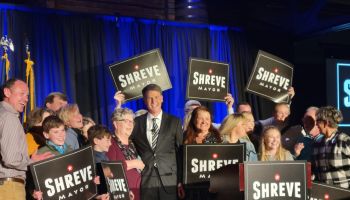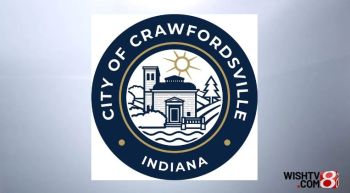(INDIANAPOLIS) — One notable story from this year’s legislative session was what didn’t happen:
a COVID outbreak.
Senate Minority Leader Greg Taylor (D-Indianapolis) acknowledges feeling “scared” at the start of
the session that the virus would rip through the House and Senate, with 150 legislators from
across the state working closely for four months. And House Speaker Todd Huston (R-Fishers),
who had his own bout with COVID-19 before the start of the sssion says for the first couple of
months, the legislature had a member or staffer sidelined just about every day, either by infection
or to quarantine after exposure.
Leaders haven’t disclosed how many members were infected during the session, citing privacy
concerns. Senate President Pro Tem Rod Bray (R-Martinsville) says he was “pleasantly
surprised” there was never an outbreak wide enough to bring the session to a halt, as he and
Huston had feared.
Legislators revamped operations to cope with the pandemic. The House didn’t meet in its own
chamber until the final day of the session, while the Senate seated some members in the
spectators’ gallery. Committee hearings had strict end times to allow team for cleaning before the
next committee moved in. And instead of the House and Senate operating on separate tracks until
the final weeks of the session, legislators tried to work out ahead of time what both chambers
could accept so they could minimize end-of-session conferences.
Huston and Bray say that’s a change that may continue even when the pandemic is over. Huston
points to one of the first and most significant laws passed this session: a police reform bill limiting
chokeholds, emphasizing de-escalation training, and making it easier to identify and get rid of
violent officers. Huston says Avon Representative Greg Steuerwald (R) reached out to Indiana
Black Legislative Caucus chair Robin Shackleford (D-Indianapolis) within a month of the murder of
George Floyd in Minneapolis, and spent the summer talking with police and civil rights groups. By
the time committee hearings began in January, the language they’d worked out passed both
chambers unanimously, without a single amendment.
While Huston credits better communication with smoothing both health concerns and the
legislative process, he says communication in other respects was a casualty of the pandemic. He
says the need for social distancing made it harder for freshman members to get to know their
colleagues.
Taylor praises Bray for enforcing a mask requirement, even over opposition from some senators.
He says he’s never seen as many senators eating on the floor as he did this year, suggesting
some senators sought to take advantage of an exception to mask rules.













